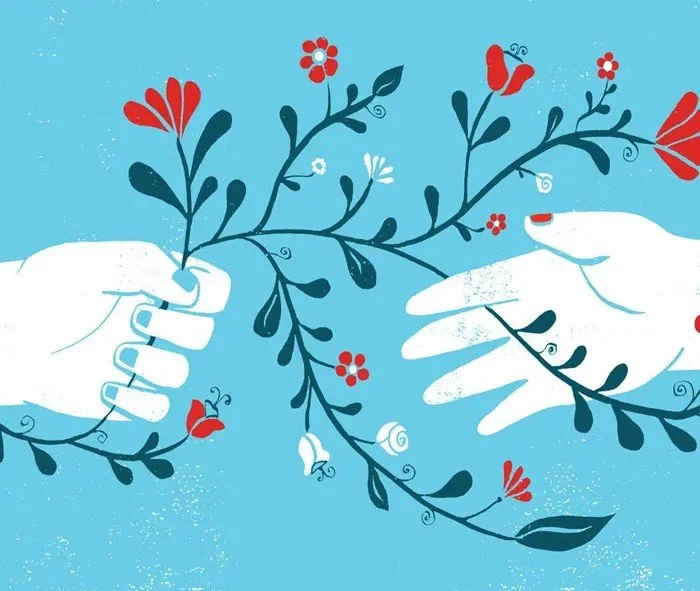When Leaders Offer GRACE, It Can be Amazing
“Grace resides in work cultures where psychological safety is present.”
Grace is often described as unmerited favor. It comes at us out of nowhere, undeserving, with no conditions. It’s mystical. We can’t earn or hustle for it. It just pours in, like a refreshing rain that washes over us sweetly, after a hot summer day.
Image credit: NPR
Grace shows up when we need it most, at our lowest points in life. When we’ve made a mistake, dropped the ball, said the wrong thing, messed up a plan, a project, or created harm for someone. Then guilt and that gnawing, unsettling feeling in the belly or chest sets in. It’s an “Oh no!” moment! But if we’re lucky, grace waltzes in and offers a reprieve. Leaving us feeling grateful, relieved, and yet undeserving.
Like the time I desperately needed a Caribbean vacation from work and family demands and walked up to the airport ticket counter without a passport. Or when I dropped a large, hot sweet potato casserole on the kitchen floor just before a dinner party. In both instances, people around me responded with grace. Amazingly, I boarded that international flight without a passport through a set of miracles. And I was able to salvage most of that delicious casserole. Ahhh!
Many years ago I was facilitating a retreat for a group of senior leaders at a mid-size organization. I set up an exercise where I asked the leaders to raise their hands in response to a prompt. I invited them to look around the room to see what they noticed. Well, the top leader in the room, who was visually impaired, kindly said with a smile and gracious chuckle, “Lorraine, I’m not able to see what others are seeing.” Then it hit me. He couldn’t see!
At that moment, embarrassment enveloped me. I lost my footing, and that sinking feeling of guilt and self-doubt set in. An equity faux pas! When I designed the retreat, I did it with an equality lens, which treats everyone the same and assumes everyone engages and interacts from the same place. Equity, rather, adjusts and accommodates for the diversity of abilities, thoughts, ethnicities, gender, sexuality, etc. What a misstep! I desperately needed grace, and not the kind that preludes a meal.
I quickly pivoted and adjusted the exercise. Surprisingly, perhaps even miraculously, the CEO graciously and skillfully downplayed my mistake. So much so that some people in the room totally missed what happened. Grace helped me facilitate the retreat with a level of composure and focus. In hindsight, I wish I had extended a bit more grace to myself. I was caught in the trap of trying to be and do everything with perfection. Today I’m much better with missteps, improvisation, and self-grace.
Image Credit: Cedar Springs Community Church
We all need grace when we make mistakes. When we fall, lose it, make a move or choice that doesn’t turn out well. Things fall apart at work, at home, and even at the Oscars. It’s bound to happen. “I think we’ve all overstepped boundaries at one point in time in our lives and regretted it. We are all human and make mistakes. Some not readily fixable,” said my best friend from college, who happens to be a clergy and talks a lot about grace.
Although grace is often divine, it can come from anyone and anywhere. Leaders can role model and bestow grace on their work colleagues, direct reports, and management especially during difficult conversations, performance reviews, misunderstandings and disagreements. We can be gracious while also being clear and direct, inviting others to share their perspective.
Image credit: www.king5.com
Grace often resides in work cultures where psychological safety is present. When employees feel safe to be authentic, vulnerable, and build trust. Many of my friends and colleagues experienced loss over the past two years and are caring for their elderly parents, sick family members and friends and yet they do their best to show up at work to engage, lead and execute. That takes grace. Being aware of those moments — of people quietly plowing through hard times — can maybe make us more empathetic and understanding at work, home and in our community.
At times I’ve given grace, looked past a mishap, and other times I haven’t and wish I had. When I give grace, it changes and expands me. Radical grace has a way of opening up bridges to kindness, humility, mercy, and compassion — all effective leadership competencies. Writer Anne Lamott said, “I do not understand the mystery of grace — only that it meets us where we are and does not leave us where it found us.”
As a leader, as a human being, can you recall a time when you’ve given or received grace? If so, what was that like? Is grace present in your work culture? If so, what does it look like?
In closing, no one sings about amazing grace quite like the Queen of Soul Aretha Franklin. Take a moment to listen, relax, and extend yourself some grace today.
Song Amazing Grace: https://open.spotify.com/track/64R2qdtIxxGMcqWJu3zELf?si=8a0d5cba1386453c



